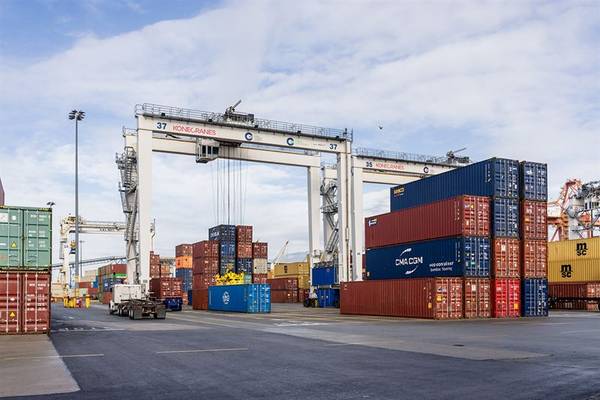GCT Global Container Terminals Orders Hybrid and Battery-Powered Konecranes RTGs for British Columbia Terminals
Apr 22, 2025

GCT Global Container Terminals has ordered 10 hybrid Konecranes rubber-tired gantry (RTG) cranes for its GCT Deltaport terminal and one battery-powered Konecranes RTG for its GCT Vanterm terminal. Credit: Konecranes
GCT Global Container Terminals has ordered 10 hybrid Konecranes rubber-tired gantry (RTG) cranes for its GCT Deltaport terminal and one battery-powered Konecranes RTG for its GCT Vanterm terminal. The agreements were signed in Q1 2025, and the 11 cranes will be delivered by Q3 2026.
The new orders expand GCT's fleet of Konecranes RTGs to 43 units. The terminal operator’s earlier RTGs are equipped with Konecranes' Diesel Fuel Saver system, bringing significant fuel consumption reductions. GCT is taking another step towards its emission reduction goals, adding 10 hybrid Konecranes RTGs and placing Konecranes’ first order for a fully battery-powered RTG.
The 10 hybrid Konecranes RTGs for GCT Deltaport will further improve fuel efficiency at what is one of Canada’s busiest and largest container terminals. The battery-powered RTG for GCT Vanterm will come with a dedicated charging container and automated charging interface, integrating with on-site electricity infrastructure. The GCT Vanterm order is GCT’s pilot project for zero-emission RTG operations, providing critical insights that will help GCT make informed decisions on its net zero pathway.
This contract is part of Ecolifting, Konecranes’ vision to increase its handprint—meaning the beneficial environmental impact that can be achieved with our product and service portfolio—while reducing customers’ carbon footprints.
Ports
crane
infrastructure
Port Infrastructure